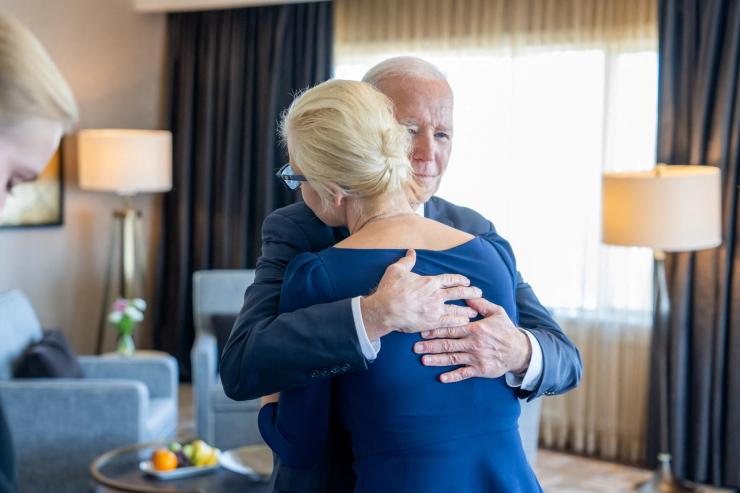The News
Washington has announced 500 new sanctions on Russia in the wake of the death of opposition leader Alexei Navalny and to mark the second anniversary of the full-scale invasion of Ukraine.
The sanctions will target people involved with Navalny’s imprisonment at an Arctic penal colony, and those coordinating Russia’s war efforts. The U.S. is also placing export restrictions on 100 Russian businesses.
The sanctions — which follow a tranche of similar ones issued by the European Union — “will ensure Putin pays an even steeper price for his aggression abroad and repression at home,” U.S. President Joe Biden said.
SIGNALS
Sanctions haven’t had much impact on Russia to date
Western nations have imposed multiple rounds of harsh sanctions on Russia as the war has dragged on — but they haven’t significantly damaged the nation’s economy, which grew by 3% in 2023 — faster than the U.S.′ — thanks to Moscow’s defense spending, the Washington Post reported. U.S. officials have privately admitted that the new sanctions will also have a limited impact in deterring Vladimir Putin’s war on Ukraine, The Wall Street Journal reported. While the sanctions are “symbolically important,” the U.S. hasn’t gone far enough to inflict real economic damage to Russia over fears of the fallout to Western economies, one economist told the Post. Moscow is also skilled at getting around sanctions and is trading with nations like India and China that aren’t “subscribing to the Western measures,” according to the Journal.
West’s response to Ukraine war colored by fear of nuclear conflict
The cautious approach from Western countries to delivering aid and ammunition to Ukraine has likely been shaped, in part, by the fear of a nuclear confrontation with Russia, according to diplomats and experts who spoke to Politico. One researcher suggested a high likelihood that Russian leader Vladimir Putin had directly communicated a nuclear threat to U.S. President Joe Biden and German Chancellor Olaf Scholz, which scared them into deciding a more gradual strategy of arming Ukraine and sanctioning Russia. The fear of such a standoff “was very strong in the beginning,” one diplomat said. “It shaped the world’s response.” It has especially dictated how the West delivers weapon systems to Ukraine, replete with caveats on how and when they can be used. “There is an obsessive attention to detail,” the researcher told Politico. “What this obsession is covering up for is a fear of triggering some escalatory response.”
China girding markets against future US sanctions
As Washington fears a possible confrontation with China over Taiwan in coming years, Beijing is trying to shield its economic interests from future sanctions. The Chinese government announced in 2022 that it would create a “national unified market,” making it self-reliant and protecting against Washington’s influence. China has also built retaliatory measures against the West in the event of an economic war: Due to its dominance in global supply chains, Beijing could take reciprocal measures against countries that impose export controls or otherwise threaten China’s interests, Foreign Policy columnist Zongyuan Zoe Liu wrote.



